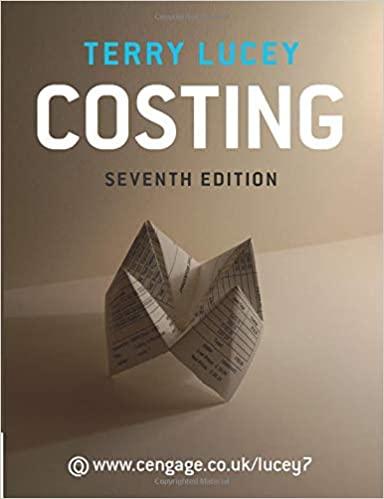Question
Banzhaf Power Index Consider 5 voters, labeled A, B, C, D, and E, who are shareholders on a company board. 1) If there are 11
Banzhaf Power Index
Consider 5 voters, labeled A, B, C, D, and E, who are shareholders on a company board.
1) If there are 11 votes total and a 2/3 majority is required to pass a motion, what is the quota? That is, how many votes are required to pass a motion?
(Hint: the answer is a whole number between 0 and 11 that represents at least a 2/3 majority).
2) Suppose A has 5 votes, B has 3 votes, and C, D, and E have one vote each. Determine the Normalized BPI and the Absolute BPI for each voter.
3) If A gives one vote to B, so that the new distribution of votes is: A has 4, B has 4, C has 1, D has 1, and E has 1, what happens to voter A's Normalized BPI (meaning, voter A's share of power)--does it increase, decrease, or stay the same?
4) In a weighted voter scheme, a "dummy voter" is a voter who effectively has no power (NBPI = 0) even though they are allowed more than zero votes.
Give an example of a voting situation (quota and distribution of votes among voters) where at least one of the voters is a dummy voter.
5) Give your best explanation for the apparently paradoxical answer to #3 above.
Step by Step Solution
There are 3 Steps involved in it
Step: 1

Get Instant Access to Expert-Tailored Solutions
See step-by-step solutions with expert insights and AI powered tools for academic success
Step: 2

Step: 3

Ace Your Homework with AI
Get the answers you need in no time with our AI-driven, step-by-step assistance
Get Started


